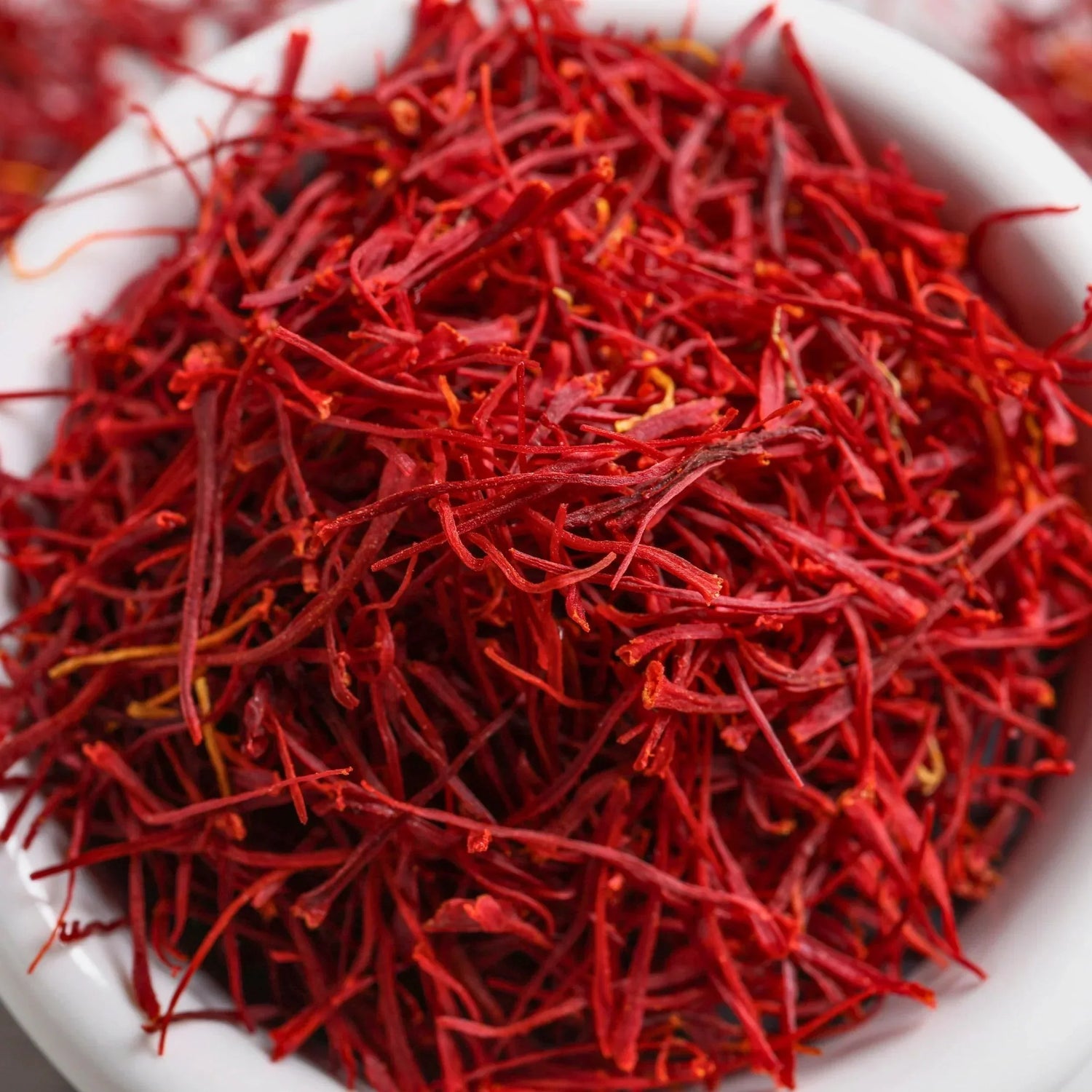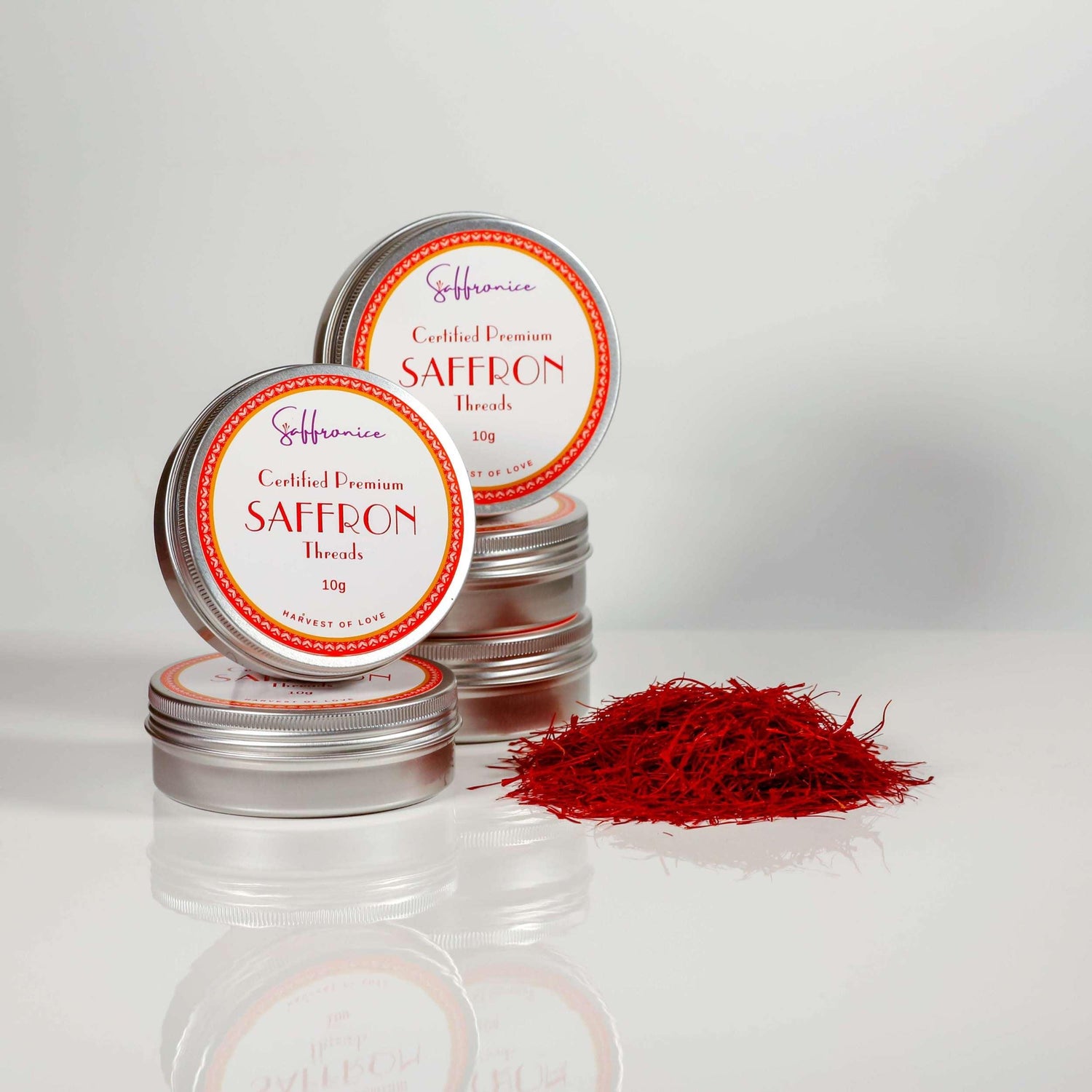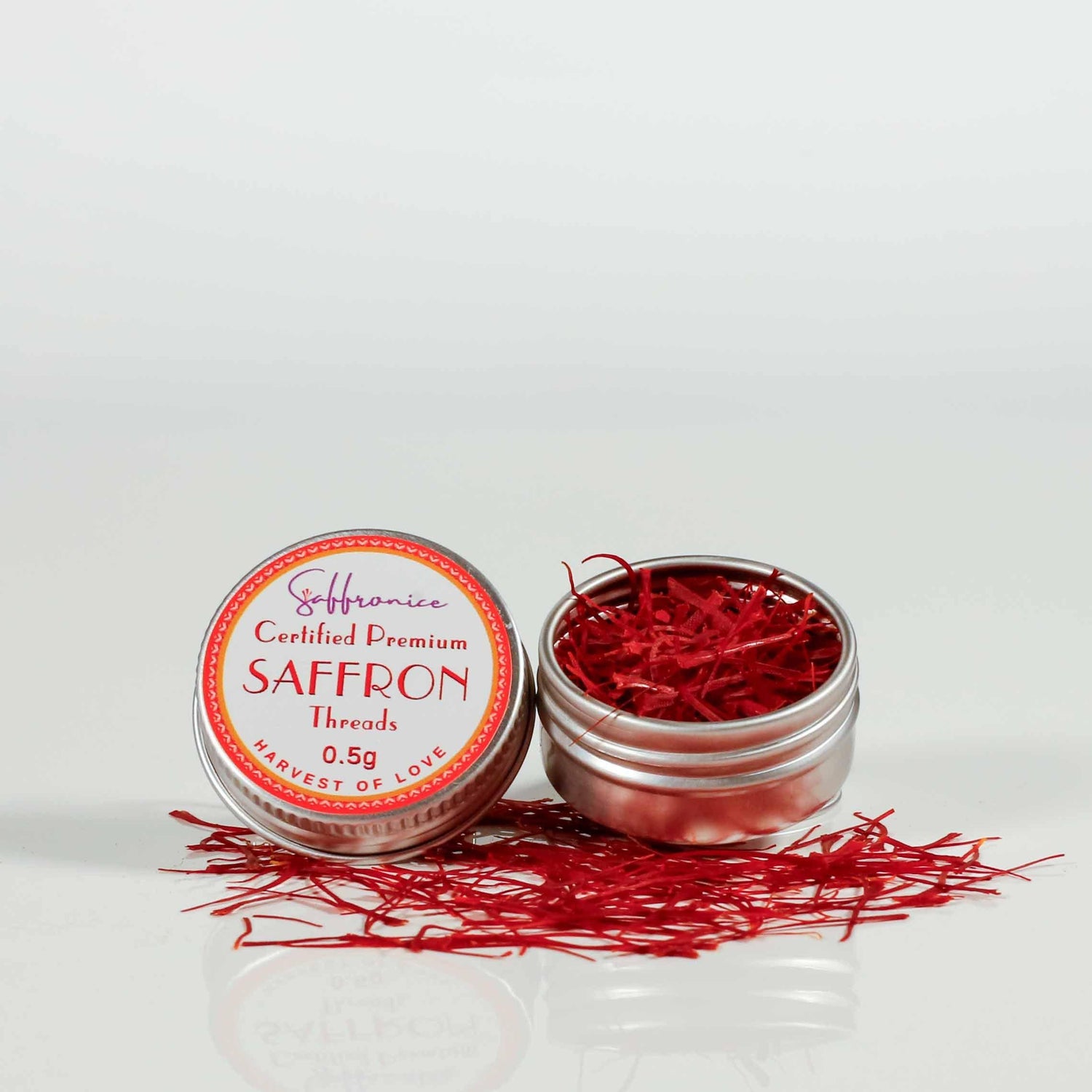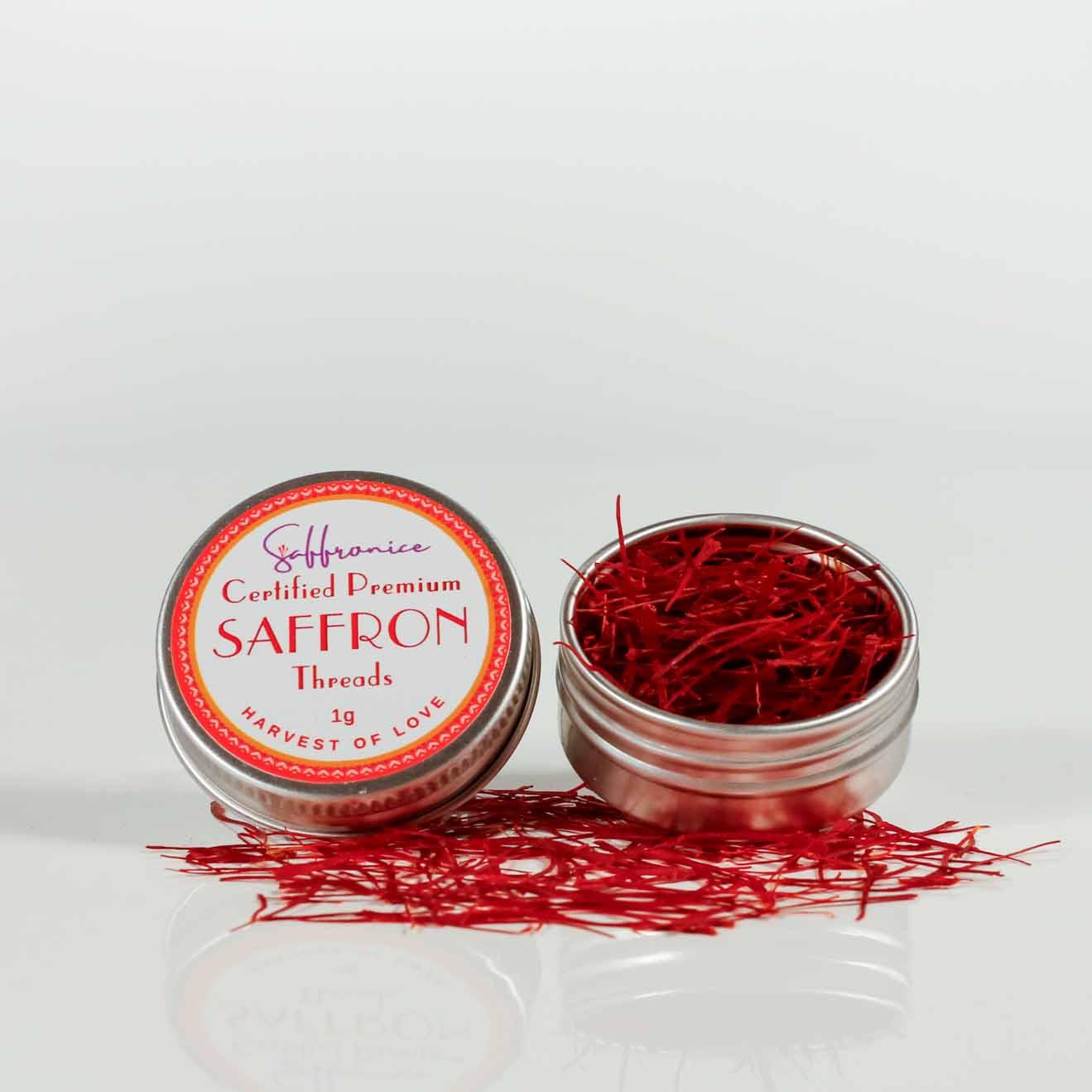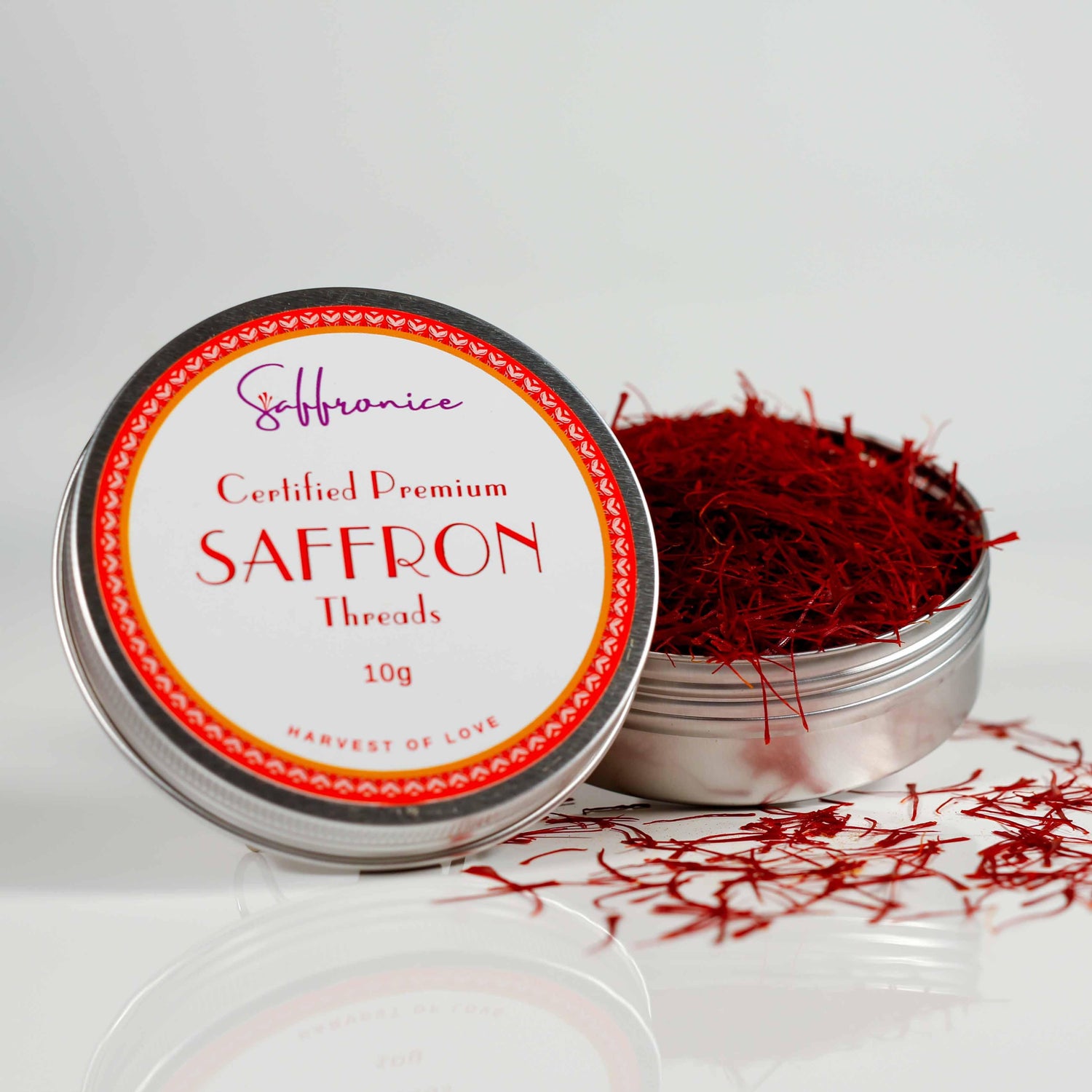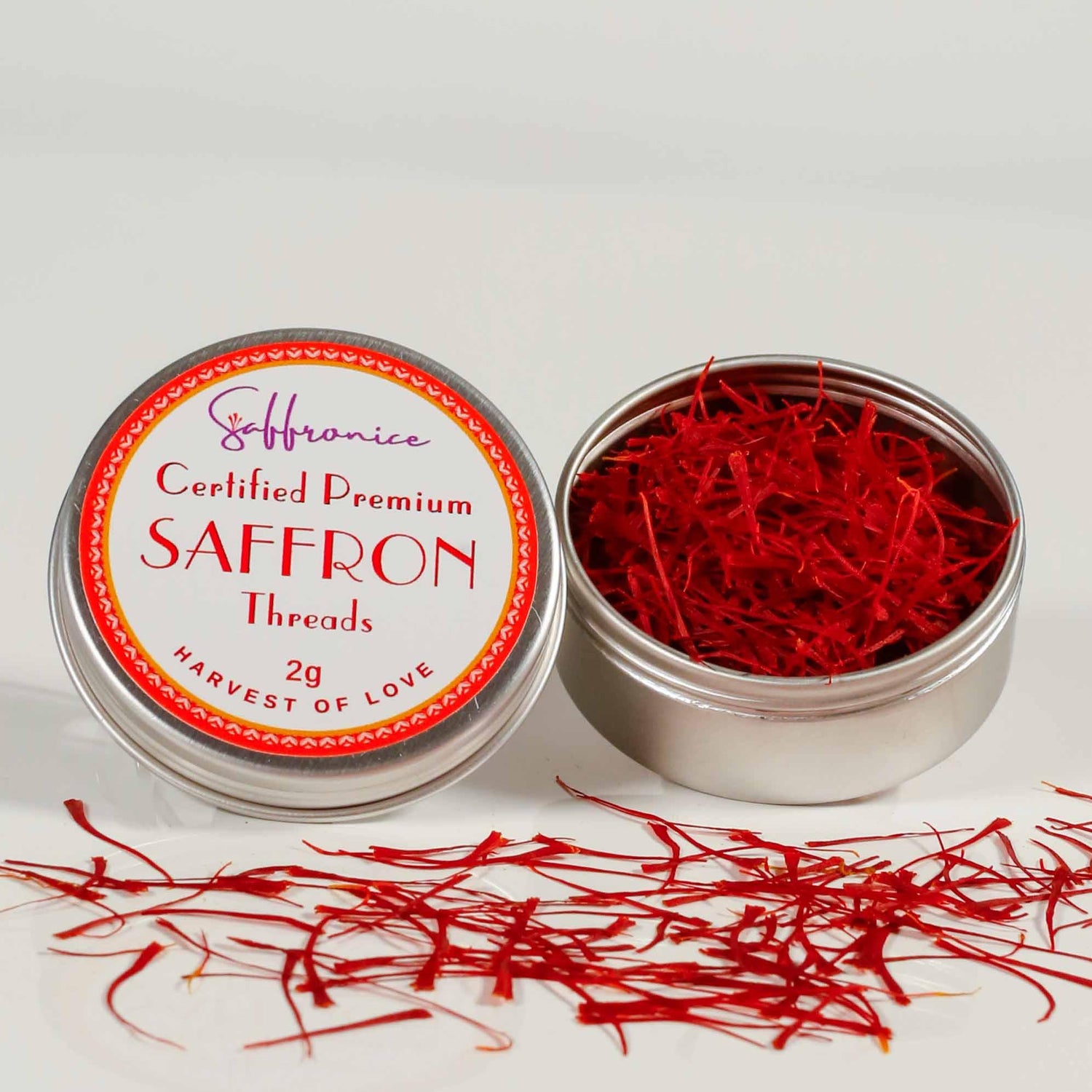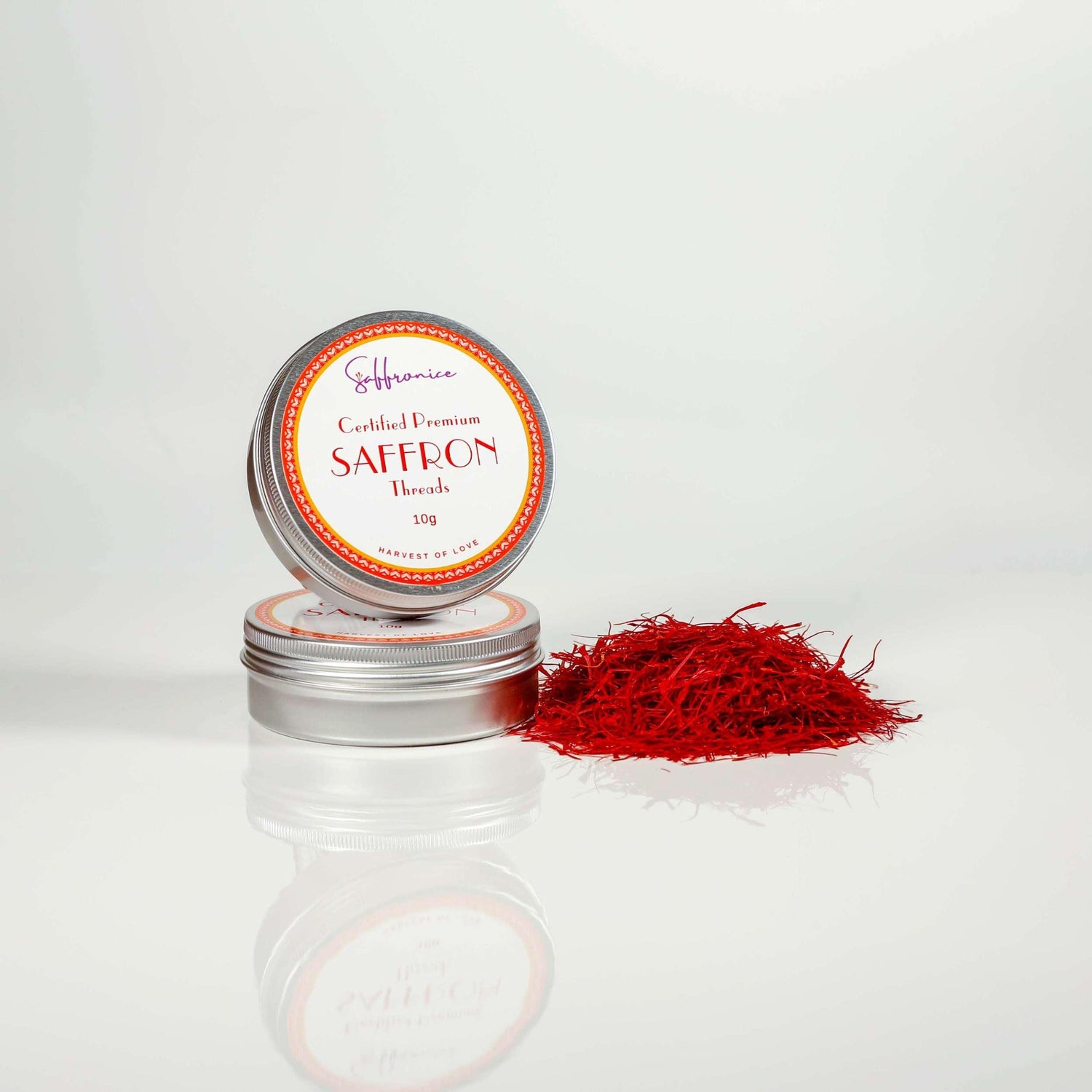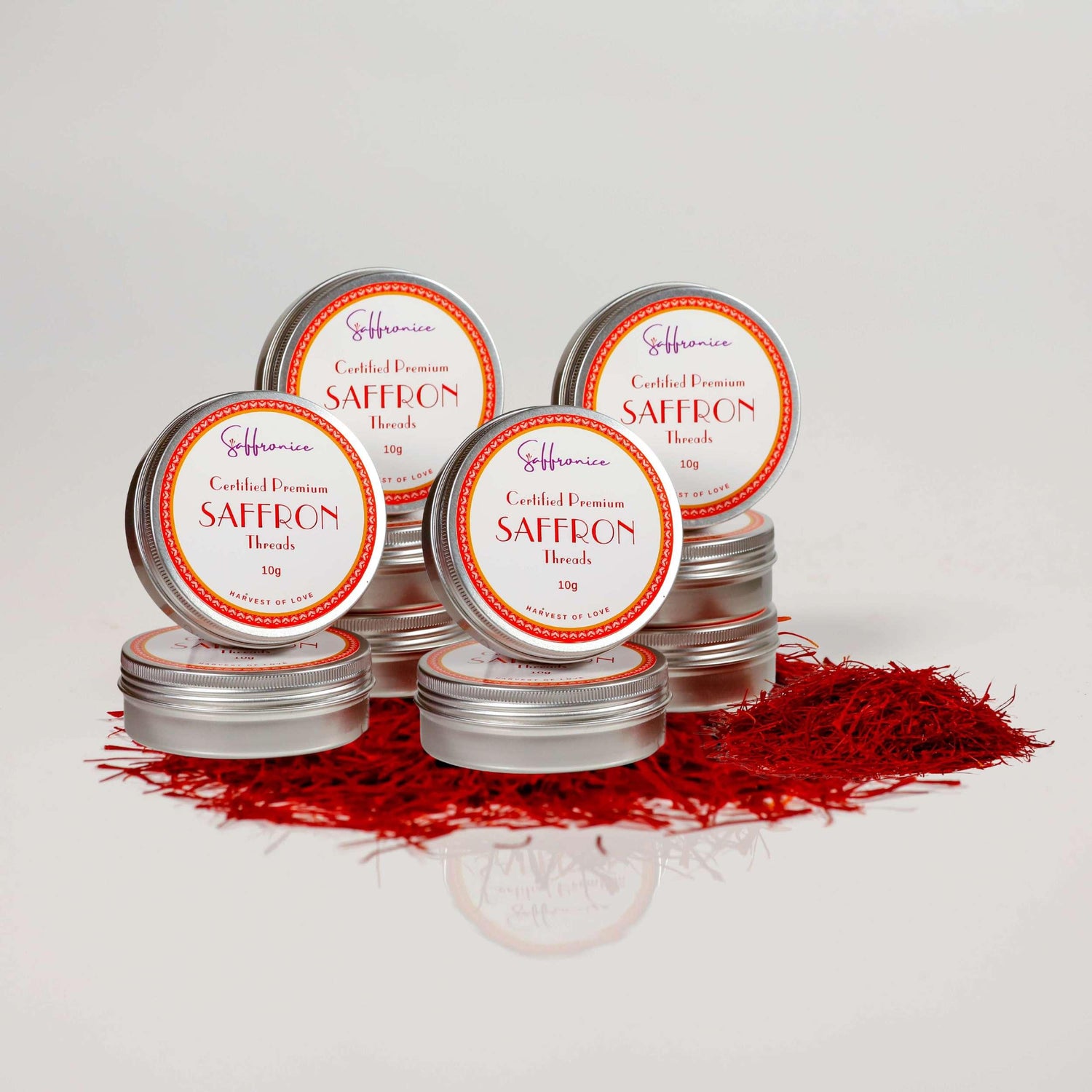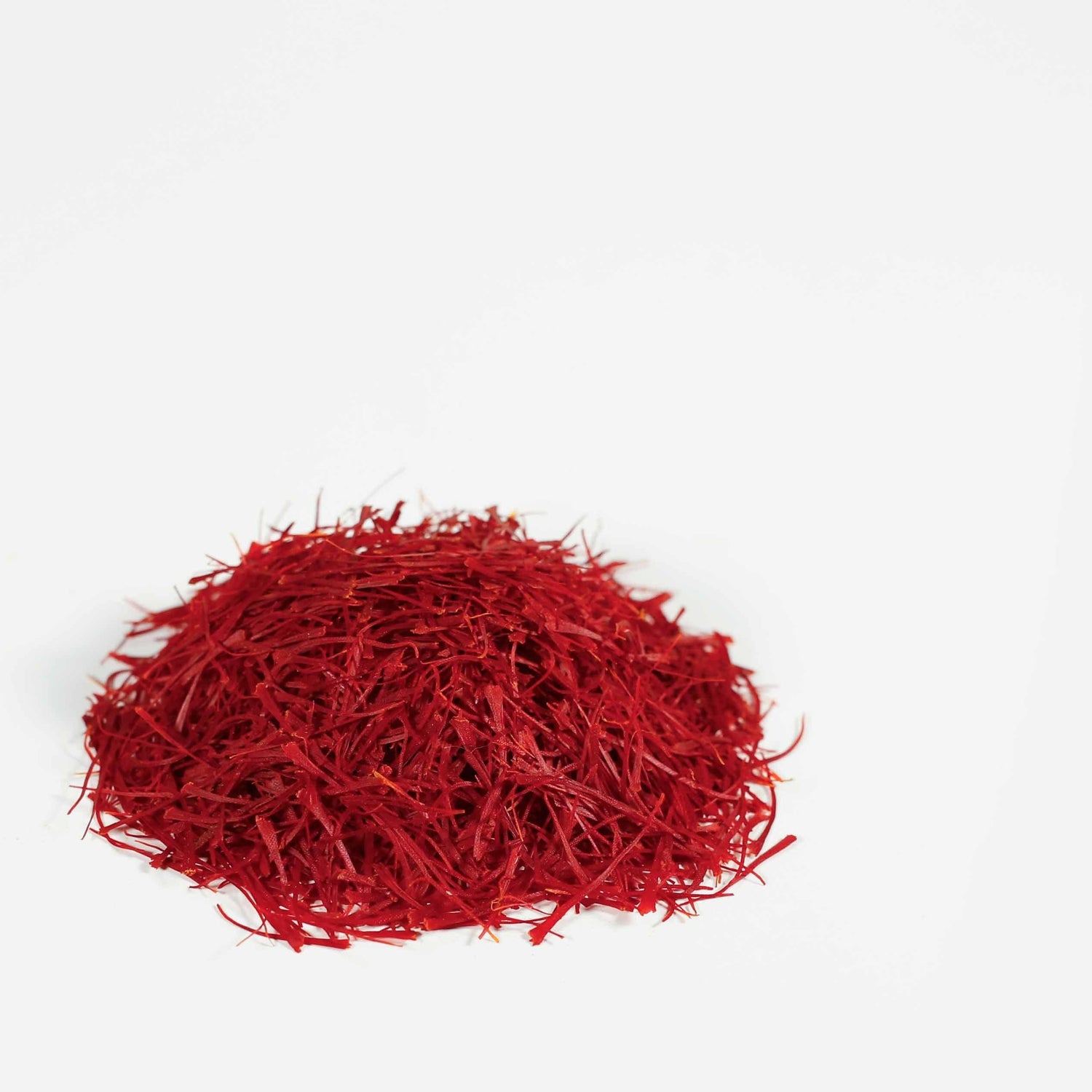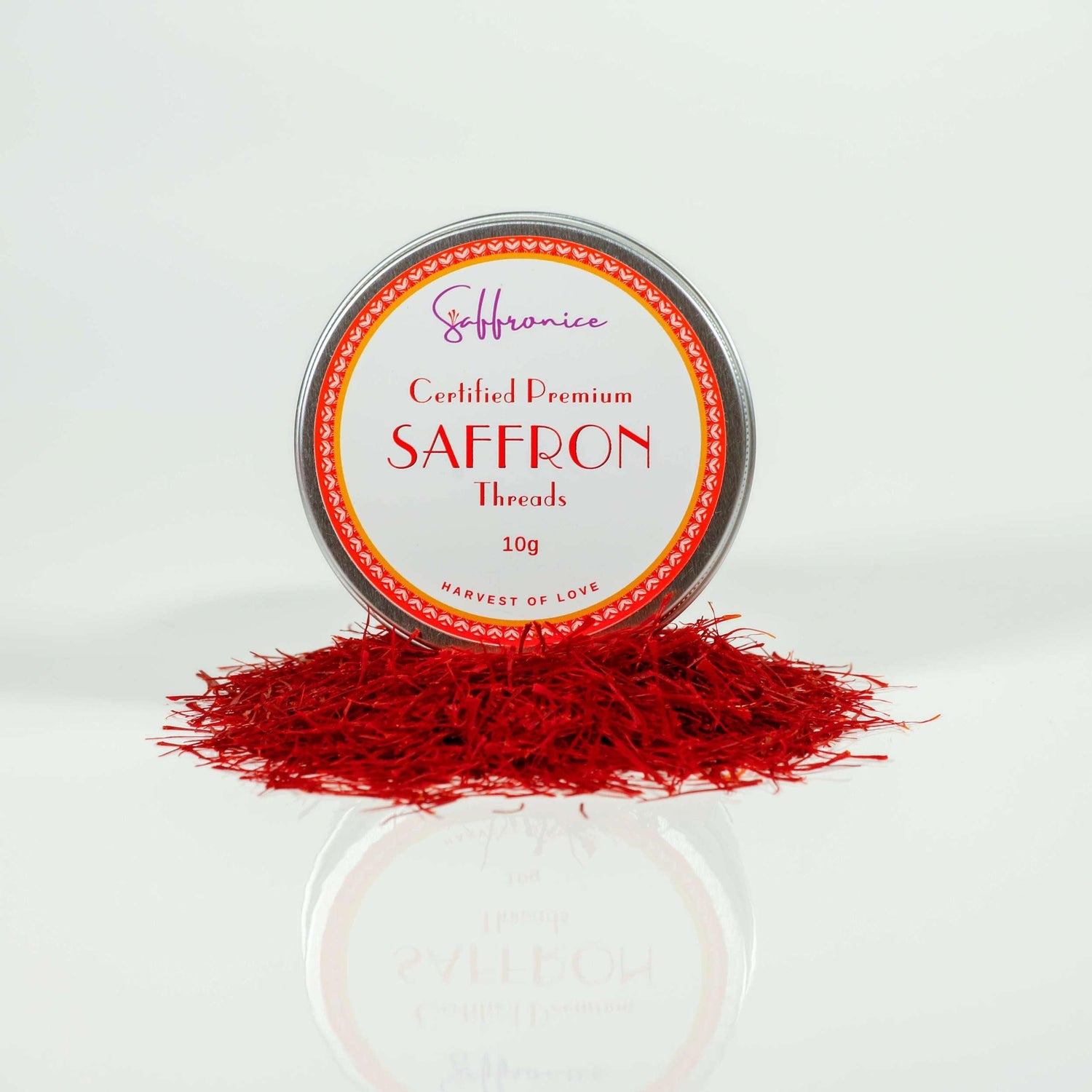
Saffron Za'atar Lamb Chops Recipe - Pomegranate Twist
Explore the richness of Middle Eastern cuisine with Saffronice's Za'atar Spiced Lamb Chops. Infused with exotic saffron and a pomegranate reduction, this dish is a feast for the senses.
Premenstrual Syndrome (PMS) is a common condition affecting many women worldwide. It involves physical and emotional symptoms that can greatly affect daily life and well-being. These symptoms, which include mood swings, irritability, bloating, and fatigue, can disrupt routines and strain relationships.
Saffron, derived from the vibrant Crocus sativus flower, emerges as a promising natural remedy. Known for its rich color and distinct aroma, saffron has been used for centuries in traditional medicine. Recent studies suggest that saffron may help in easing PMS symptoms by promoting hormonal balance and supporting mental health.
In addition to its potential benefits for PMS, saffron may also provide natural relief during menopause, helping to alleviate symptoms such as hot flashes and mood swings.
In this guide, we will explore the saffron vs PMS discussion, looking at how this ancient spice can benefit women's health. We will examine its potential for reducing PMS symptoms and provide practical advice on how to incorporate saffron into your daily routine. Find out if saffron could be the natural remedy you've been searching for to relieve PMS.
Premenstrual Syndrome (PMS) affects a significant number of women, manifesting through a variety of physical and emotional symptoms. These often include mood swings, bloating, fatigue, irritability, and breast tenderness. Hormonal changes in the body can lead to these symptoms, which typically occur in the luteal phase of the menstrual cycle.
Premenstrual Dysphoric Disorder (PMDD), while less common than PMS, presents more severe symptoms that can significantly impact daily functioning. Unlike PMS, PMDD can cause intense emotional and psychological distress, including depression, anxiety, and severe irritability.
Understanding the distinction between PMS and PMDD is crucial for effective management. While both conditions are influenced by hormonal fluctuations—primarily involving estrogen and progesterone—their impact on mood and physical health differs notably. This hormonal imbalance affects neurotransmitter systems in the brain, particularly serotonin, which plays a key role in regulating mood.
Recognizing these patterns can help in tailoring interventions that aim to restore hormone balance and alleviate symptoms. The focus on serotonin highlights why treatments like saffron, known for its ability to support serotonin production and hormonal balance, are gaining attention as potential natural remedies for managing these conditions.
Saffron, often referred to as "the golden spice," has a rich history deeply rooted in ancient Persia and traditional medicine. This vibrant spice was cherished not only for its culinary value but also for its therapeutic properties. Historically, saffron was used to treat a range of ailments, underscoring its longstanding reputation in the realm of natural remedies.
The healing power of saffron can be attributed to its active components:
Saffron's benefits extend beyond mental health support. It is a valuable tool for enhancing both mental and physical health with various health benefits such as:
By understanding these aspects, you can appreciate why saffron is increasingly recognized as a valuable tool for enhancing both mental and physical health.

Saffron has become a powerful natural remedy for easing the symptoms of premenstrual syndrome (PMS). It effectively targets mood swings, cramps, and hormonal imbalances.
Saffron works in two main ways to help improve mood during PMS:
Saffron's analgesic properties provide significant relief from menstrual cramps. Additionally, its anti-inflammatory effects target the underlying cause of inflammation during menstruation, further reducing discomfort.
By regulating serotonin levels, saffron helps smooth out the emotional ups and downs often experienced during PMS. This leads to improved mood stability and a better quality of life for those affected by PMS.
Using saffron as a natural remedy for PMS can greatly reduce various symptoms associated with this condition, offering a promising alternative to traditional treatments.
Clinical trials have shown that saffron may be effective in treating PMDD (Premenstrual Dysphoric Disorder), often compared to standard treatments like fluoxetine. One significant study involved 120 women with PMDD who were split into three groups: saffron, fluoxetine, and placebo. The participants received treatment during the luteal phase over two menstrual cycles.
These findings suggest that saffron could be an effective alternative with fewer side effects for those seeking natural remedies for PMDD management.
The results highlight saffron’s role in not only relieving severe PMS symptoms but also offering a safer option than traditional antidepressants like fluoxetine. This encourages considering saffron as an essential part of comprehensive PMS management strategies for individuals affected by PMDD.
Incorporating saffron into your routine for PMS management can be straightforward and rewarding. Finding saffron supplements that suit your needs is crucial. Here are some key considerations:
Saffron is available in various forms, including capsules, tablets, and gummies. The suggested dosage typically ranges from 15-30 mg of saffron extract per day. Always consult with a healthcare professional before starting any new supplement regimen.
To make saffron a consistent part of your daily life, try adding it to your morning or evening routine. Consider consuming it with meals or as directed on the supplement packaging. This consistency helps in maximizing its benefits over time.
It's essential to source high-quality saffron to ensure purity and efficacy. Products like Saffir’Activ® are renowned for their superior quality and effectiveness. When choosing supplements, look for those that guarantee authenticity and have been tested for contaminants.
Choosing the best way to use saffron for PMS involves a combination of proper dosage, routine integration, and selecting premium products. By doing so, you can effectively harness the potential benefits saffron offers in managing PMS symptoms.

When managing Premenstrual Dysphoric Disorder (PMDD), many women turn to Selective Serotonin Reuptake Inhibitors (SSRIs). These medications are commonly prescribed due to their effectiveness in moderating mood through the regulation of serotonin levels in the brain. However, SSRIs often come with a host of side effects, including nausea, weight gain, fatigue, and sexual dysfunction, which can deter many from using them long-term.
Exploring natural remedies like saffron presents an appealing alternative. Saffron has shown promising results in treating mood-related symptoms associated with PMDD by supporting serotonin production without the undesirable side effects linked to synthetic medications. Its analgesic and anti-inflammatory properties further enhance its potential as a holistic solution for PMS-related discomforts.
In addition to saffron, other herbal agents may provide relief from PMDD symptoms:
These herbal alternatives underscore the potential of natural treatments in managing PMDD effectively while minimizing adverse reactions commonly associated with conventional pharmaceuticals.
Managing PMS with saffron offers a promising natural alternative. With its proven effectiveness in alleviating mood-related symptoms and providing relief from cramps, saffron stands out as a powerful ally against PMS. By supporting serotonin production and promoting hormonal balance, saffron addresses both the emotional and physical challenges associated with PMS.
For those seeking to embrace this natural remedy, consider exploring high-quality saffron supplements available at Saffronice.com. Their products are curated to ensure optimal results, making them a reliable choice for those looking to manage PMS effectively.
Visit our shop to discover premium quality saffron products that can help improve your menstrual health. Embrace the healing power of saffron and experience the difference it can make in your life.
PMS, or Premenstrual Syndrome, is a condition that affects many women during their menstrual cycle. It can lead to various symptoms such as mood swings, cramping, and physical discomfort, significantly impacting overall well-being.
Saffron has shown promise in alleviating PMS symptoms through its analgesic and anti-inflammatory properties. It also plays a role in regulating serotonin levels, which can support mood and emotional balance.
The active components in saffron include crocetin and safranal. These compounds are known for their beneficial effects on mental and physical health, making saffron a potential natural remedy for conditions like PMS.
Yes, studies have compared saffron to fluoxetine for the treatment of PMDD. Findings indicate that saffron may be effective in alleviating symptoms with fewer adverse effects compared to traditional medications.
You can incorporate saffron into your routine by using supplements or gummies. Recommended dosages vary, so it's essential to follow guidelines and ensure you source high-quality saffron products for optimal results.
Yes, there are natural alternatives to SSRIs for managing PMDD. Saffron is one such remedy that may offer benefits without the common side effects associated with synthetic medications. Other herbal agents may also support PMDD treatment.


